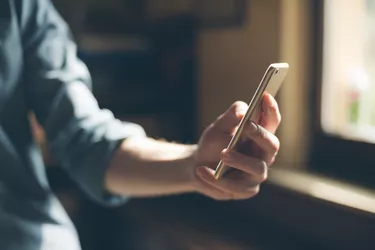If you suspect fraud in connection with your credit card or bank account, you'll want to report it immediately. While you should report it to your bank, you can also report fraud to other authorities.

Reporting Credit or Debit Card Fraud
As soon as you find evidence of fraud on your credit or debit card statement, contact your bank. Legally, if you report credit card fraud, you can only be held liable for a maximum of $50 in charges, and often banks and card issuers have a zero-liability policy, so you won't owe anything at all.
Video of the Day
Video of the Day
The bank will usually issue you a new card number, so you'll need to update any online shopping accounts or automatic bill payments to use the new number. You may also wish to change your online banking passwords, or card PINs, in case the fraudster has gotten hold of them. And you can keep a careful eye on future statements and online transaction reports to spot any further fraudulent transactions.
Accounts Created in Your Name
In addition to using your existing accounts fraudulently, criminals can also use your information to open new bank accounts, sign up for credit cards or take out loans in your name. You can often spot this kind of fraudulent activity by checking your credit report. You're allowed to access a free report from each credit reporting bureau once per year, and you can sign up for various free or ad-supported credit monitoring services for additional monitoring.
If you discover accounts created under your name that you didn't create, you should contact the bank or creditor immediately to report the fraud. You may also want to file a report with your local police or with the Federal Trade Commission, especially if you think you might know who's responsible for the fraud. Additionally, you can file fraud reports with the credit reporting bureaus to let them know the accounts are not yours.
Once there's a fraud alert on your credit bureau accounts, it should be more difficult for criminals to open more accounts in your name.
Credit Freezes
If you've been the victim of bank fraud, or are concerned about becoming one, consider putting a credit freeze on your account with the major credit bureaus. That will prevent anyone from accessing your credit report unless you suspend the freeze, which will make it more difficult for anyone to open accounts in your name. If you want to open your own accounts, you will have to go through an extra step of lifting the credit freeze.
You can contact the major credit reporting bureaus and ask them to put a freeze on your account. There may be a charge for the service, depending on the state where you live.